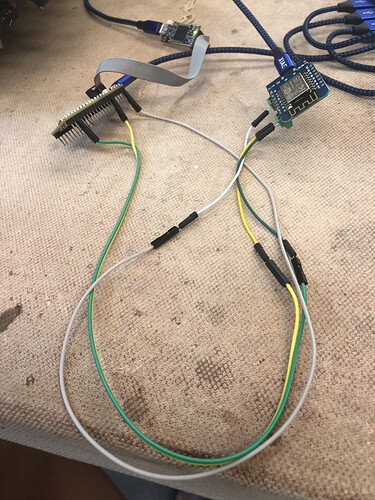Daisy Pin Name,SCH name,MCU Pin name,ADC,Arduino D#,Arduino A#,I2C,UART,SPI,,,,,,,,,,,,,,,,,,
1,USB_HS_ID,PB12,x,D0,,,UART5_RX,SPI2_NSS/I2S2_WS,,,,TIM1_BKIN,,,DFSDM1_DATIN1,USART3_CK,FDCAN2_RX,OTG_HS_ULPI_D5,ETH_MII_TXD0/ETH_RMII_TXD0,OTG_HS_ID,TIM1_BKIN_COMP12,,EVENTOUT,,,
2,SDMMC1_D3,PC11,x,D1,,,USART3_RX/UART4_RX,SPI3_MISO/ I2S3_SDI,,,,HRTIM_FLT2,DFSDM1_DATIN5,,,,QUADSPI_BK2_NCS,SDMMC1_D3,DCMI_D4,EVENTOUT,,,,,,
3,SDMMC1_D2,PC10,x,D2,,,USART3_TX/UART4_TX,SPI3_SCK/I2S3_CK,,,,HRTIM_EEV1,DFSDM1_CKIN5,,,,QUADSPI_BK1_IO1,SDMMC1_D2,DCMI_D8,LCD_R2,EVENTOUT,,,,,
4,SDMMC1_D1,PC9,x,D3,,I2C3_SDA,,,,,,MCO2,TIM3_CH4,TIM8_CH4,,I2S_CKIN,UART5_CTS,QUADSPI_BK1_IO0,LCD_G3,SWPMI_SUSPEND,SDMMC1_D1,DCMI_D3,LCD_B2,EVENTOUT,,
5,SDMMC1_D0,PC8,x,D4,,,,,,,,TRACED1,HRTIM_CHB1,TIM3_CH3,TIM8_CH3,USART6_CK,UART5_RTS/UART5_DE,FMC_NE2/FMC_NCE,SWPMI_RX,SDMMC1_D0,DCMI_D2,EVENTOUT,,,,
6,SDMMC1_CMD,PD2,x,D5,,,UART5_RX,,,,,TRACED2,TIM3_ETR,,SDMMC1_CMD,DCMI_D11,EVENTOUT,,,,,,,,,
7,SDMMC1_CK,PC12,x,D6,,,UART5_TX,SPI3_MOSI/I2S3_SDO,,,,TRACED3,HRTIM_EEV2,,,,SDMMC1_CK,DCMI_D9,EVENTOUT,,,,,,,
8,SPI1_NSS,PG10,x,D7,,,,SPI1_NSS/I2S1_WS,,,,HRTIM_FLT5,,LCD_G3,,FMC_NE3,DCMI_D2,LCD_B2,EVENTOUT,,,,,,,
9,SPI1_SCK,PG11,x,D8,,,,SPI1_SCK/I2S1_CK,,,,LPTIM1_IN2,HRTIM_EEV4,,SPDIFRX1_IN1,SDMMC2_D2,ETH_MII_TX_EN/ETH_RMII_TX_ EN,DCMI_D3,LCD_B3,EVENTOUT,,,,,,
10,SPI1_MISO,PB4,x,D9,,,UART7_TX,SPI1_MISO/I2S1_SDI/SPI3_MISO/I2S3_SDI/SPI2_NSS/I2S2_WS/SPI6_MISO,,,,NJTRST,TIM16_BKIN,TIM3_CH1,HRTIM_EEV6,,,,,SDMMC2_D3,,EVENTOUT,,,,
11,SPI1_MOSI,PB5,x,D10,,,UART5_RX,SPI1_MOSI/I2S1_SDO/SPI3_MOSI/I2S3_SDO/SPI6_MOSI,,,,TIM17_BKIN,TIM3_CH2,HRTIM_EEV7,,,,,,FDCAN2_RX,OTG_HS_ULPI_D7,ETH_PPS_OUT,FMC_SDCKE1,DCMI_D10,,EVENTOUT
12,I2C1_SCL,PB8,x,D11,,I2C1_SCL/I2C4_SCL,UART4_RX,,,,,TIM16_CH1,TIM4_CH3,DFSDM1_CKIN7,,,SDMMC1_CKIN,,FDCAN1_RX,SDMMC2_D4,ETH_MII_TXD3,SDMMC1_D4,DCMI_D6,LCD_B6,EVENTOUT,
13,I2C1_SDA,PB9,x,D12,,I2C1_SDA/I2C4_SDA,UART4_TX,SPI2_NSS/I2S2_WS,,,,TIM17_CH1,TIM4_CH4,DFSDM1_DATIN7,,,,SDMMC1_CDIR,,FDCAN1_TX,SDMMC2_D5,,SDMMC1_D5,DCMI_D7,LCD_B7,EVENTOUT
14,USART1_TX,PB6,x,D13,,I2C1_SCL/I2C4_SCL,USART1_TX/LPUART1_TX/UART5_TX,,,,,TIM16_CH1N,TIM4_CH1,HRTIM_EEV8,,CEC,,,,FDCAN2_TX,QUADSPI_BK1_NCS,DFSDM1_DATIN5,FMC_SDNE1,DCMI_D5,,EVENTOUT
15,USART1_RX,PB7,x,D14,,I2C1_SDA/I2C4_SDA,USART1_RX/LPUART1_RX,,,,,TIM17_CH1N,TIM4_CH2,HRTIM_EEV9,,,,,FDCAN2_TXFD_MODE,DFSDM1_CKIN5,FMC_NL,DCMI_VSYNC,EVENTOUT,,,
16,AUDIO IN L,x,x,NC,,,,,,,,x,,,,,,,,,,,,,,
17,AUDIO INR,x,x,NC,,,,,,,,x,,,,,,,,,,,,,,
18,AUDIO OUT L,x,x,NC,,,,,,,,x,,,,,,,,,,,,,,
19,AUDIO OUT R,x,x,NC,,,,,,,,x,,,,,,,,,,,,,,
This file has been truncated. show original


 I was able to get USART1 - 3 working with the change you suggested (not 4, but I don’t need it). However, when I tried to integrate with my full system, I ran into snags. A couple of days of tail-chasing led me to discover that PollReceive doesn’t play well with i2c. Below is a test program used with the setup I described in an earlier post (with wiring change to pins 14/15 on the Daisy, but using the same sending code). The program stops receiving/printing bytes after 1 or 2 are received. Note that I needed to call i2c.ReceiveBlocking 4 or more times for failure, and that the same problem occurs if I call i2c.TransmitBlocking instead. BTW, I tried this at 9600 baud; no difference. Also, no i2c device required in the test setup, although my full system, where I first encountered this snag, does have a set of i2c devices which my full code successfully accesses.
I was able to get USART1 - 3 working with the change you suggested (not 4, but I don’t need it). However, when I tried to integrate with my full system, I ran into snags. A couple of days of tail-chasing led me to discover that PollReceive doesn’t play well with i2c. Below is a test program used with the setup I described in an earlier post (with wiring change to pins 14/15 on the Daisy, but using the same sending code). The program stops receiving/printing bytes after 1 or 2 are received. Note that I needed to call i2c.ReceiveBlocking 4 or more times for failure, and that the same problem occurs if I call i2c.TransmitBlocking instead. BTW, I tried this at 9600 baud; no difference. Also, no i2c device required in the test setup, although my full system, where I first encountered this snag, does have a set of i2c devices which my full code successfully accesses. Thanks!
Thanks!